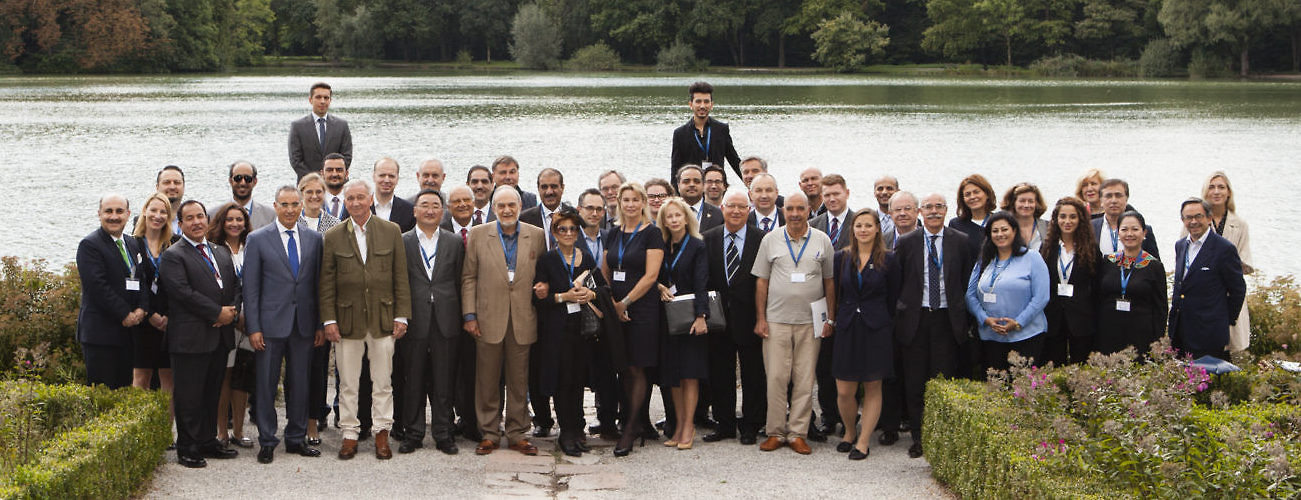The 2016 IPI Salzburg Forum focused on the theme of “Open Societies Under Attack: the return of ideology.” The event took place at Schloss Leopoldskron in Salzburg between September 4-6.
Participants, including diplomats, journalists, academics, artists, and representatives of civil society, discussed how open societies are vulnerable to threats like terrorist and cyber attacks, large flows of refugees and migrants, and extremism. At the same time, it was pointed out that closing societies will undermine the very foundations on which liberal democracies are based.
Several sessions discussed how to resolve the dilemma of maintaining security without restricting rights and freedoms. For example, how to encourage good governance and not just strong governance.
The case of Tunisia was given special attention, taking advantage of the participation of Nobel prize laureate Abdessattar Ben Moussa.
Participants also discussed the “return of ideology” such as manifestations of right-wing and Islamic extremism as well as the spread of authoritarianism. Several participants warned about a growing lack of trust in politicians and institutions. They also highlighted the dangers of the “politics of fear,” and the rise of populism.
The impact of the media, including social media, was examined. The point was made that an abundance of information is not necessarily resulting in greater knowledge. Rather people are gravitating towards sources of information that affirm existing views and narratives. This is leading to a hardening of divisions rather than greater openness and understanding.
There was a lively debate on how to prevent violent extremism, and terrorism. It was stressed that terrorists are not only attacking the West, but democracies around the world. It was noted that some terrorists are motivated by the utopian dream of the perfect society, while others are caught up in nihilistic violence.
One session debated the reasons behind the rise of “Islamism” as a dogmatic narrative in the past few decades. Views were also expressed on the appeal of groups like the “Islamic State,” as well as what can be done to prevent and control radicalization.
This year, one panel was co-organized together with the King Abdullah Centre for Interreligious and Intercultural Dialogue (KAICIID). It focused on the importance of dialogue and tolerance in promoting understanding and integration, particularly within diverse societies. Participants also discussed a point made by Karl Popper in his book Open Societies Under Attack, namely that “we should therefore claim in the name of tolerance the right not to tolerate the intolerant.”
There was also a debate on what to do about large flows of refugees and migrants, and their impact on open societies. “Those millions of refugees are individuals,” reminded one speaker. Related to that theme, the Thyssen-Bornemisza Art Contemporary (TBA21) presented an art installation called “Green Light” by Danish artist Ólafur Elíasson. Representatives of TBA21 as well as recent refugees to Austria who are involved in the project showed how to assemble the green lights. They discussed the symbolism of the welcoming green light as well as how the teamwork associated with the workshop demonstrates integration.
Ivan Novak, from the avant-garde Slovenian rock band Laibach, made a presentation called “The Sound of Ideology” on how music is often used to promote ideology. He used art, including posters made by Laibach, to show symbols and images can be manipulated to depict martial themes.
The 2016 Salzburg Forum was made possible thanks to generous support from the Open Society Foundations and KAICIID.








